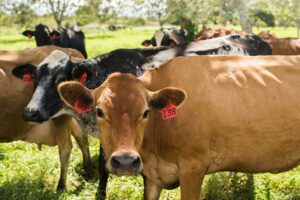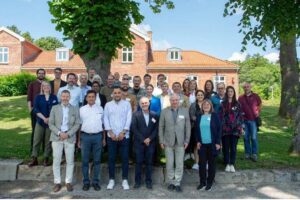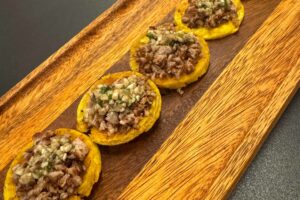Monitoring Meeting of the KoLFACI Coffee Project Highlights Progress in Pruning, Varieties, and Selection of Promising Materials for Climate Adaptation
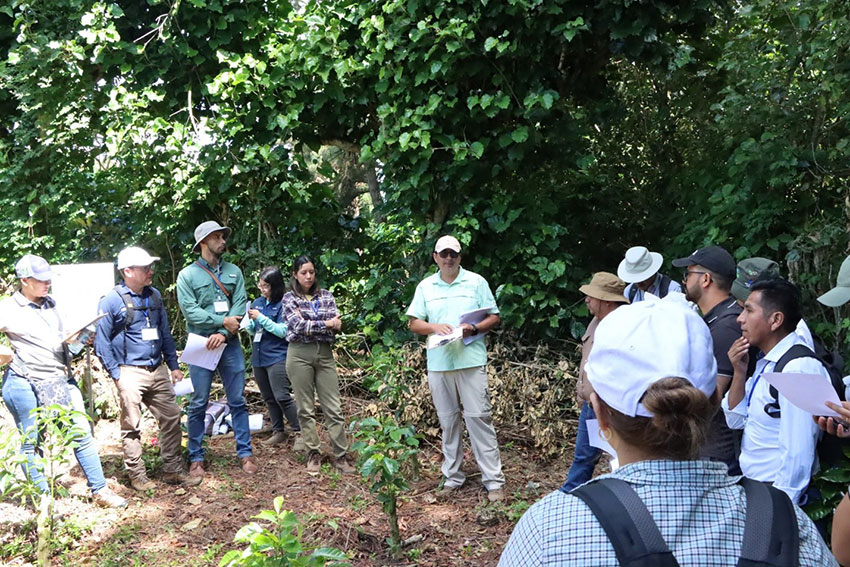
- CATIE coordinates and leads the project in Latin America, focusing on participatory research on coffee varieties, pruning techniques to improve production, and selecting materials for climate change adaptation.
On October 28, 29, and 30, representatives of the KoLFACI project "Evaluation of Pruning Technologies and Identification of Promising Coffee Materials for Climate Change Adaptation in Latin America and the Caribbean" gathered in San Salvador.
This project, coordinated by the Coffee and Cocoa Agroforestry and Genetic Improvement Unit (UAMCC) of the Tropical Agricultural Research and Higher Education Center (CATIE), brings together researchers and technicians from government institutions across nine Latin American countries. Running from January 2024 to December 2026, it is supported by the Korean Cooperation for Food and Agriculture in Latin America (KoLFACI) and the Rural Development Administration of the Republic of Korea (RDA).
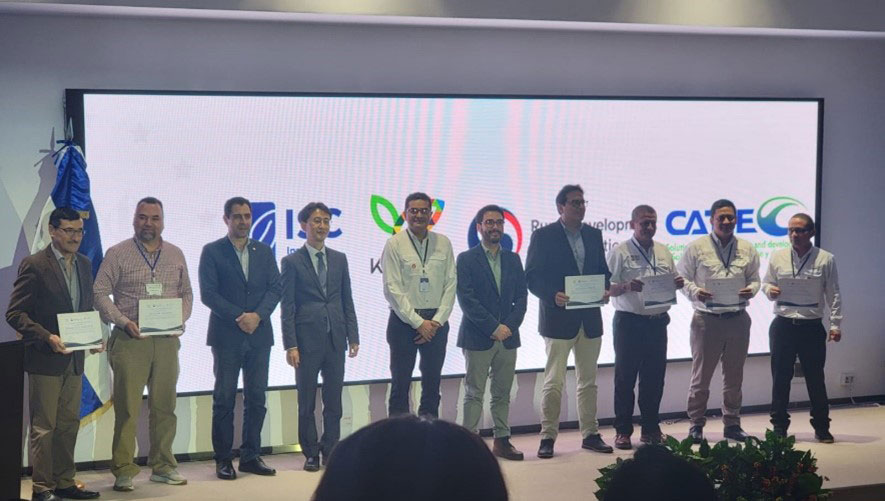
Representatives from El Salvador, Honduras, Panama, Costa Rica, the Dominican Republic, Guatemala, Nicaragua, Bolivia, and Peru shared experiences and insights in a productive dialogue on progress and challenges in the coffee sector.
The participation of KoLFACI Deputy Secretary General Han Jong-seok, accompanied by several colleagues from the organization, was particularly noteworthy, underscoring the commitment to technical cooperation between Asia and Latin America to promote sustainable coffee development in the region.
Leading the meeting on behalf of CATIE were Rolando Cerda, Coordinator of the Coffee and Cocoa Agroforestry and Genetic Improvement Unit, William Solano, Specialist in Plant Genetic Resources, and Daniel Fernandez, specialist in the International Coffee Collection and Orthodox Seed Germplasm Bank.
Monitoring Progress
The first day of the meeting was dedicated to sharing the progress from this first year of implementation, which promotes research through a network of 46 coffee trials where more than 100 technologies have been applied and evaluated. These technologies result from combining different coffee varieties and pruning types and are distributed across nine countries in the region. In this new phase, the number of research trials has been reduced to 38, but the expectation is to reach nearly 65 demonstration plots next year, expanding the results obtained with these technologies.
Additionally, on the first day, training sessions were held on key topics such as genetic improvement, methodologies for variety characterization, and criteria for establishing and evaluating germplasm banks and trials with coffee materials.
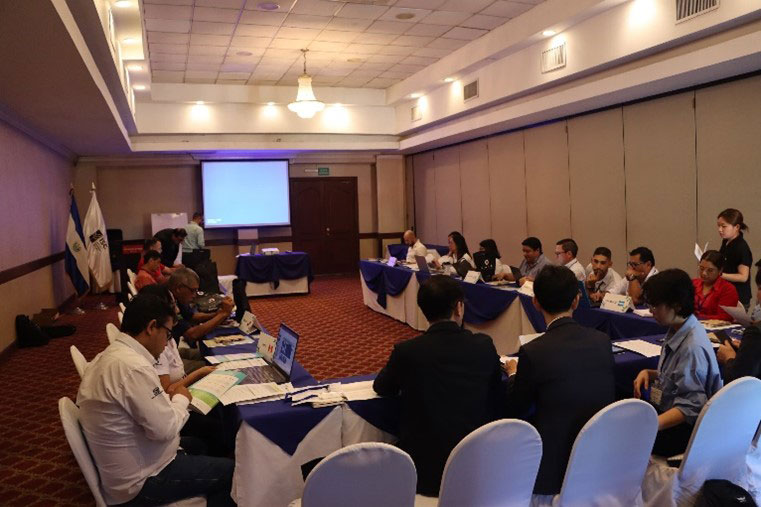
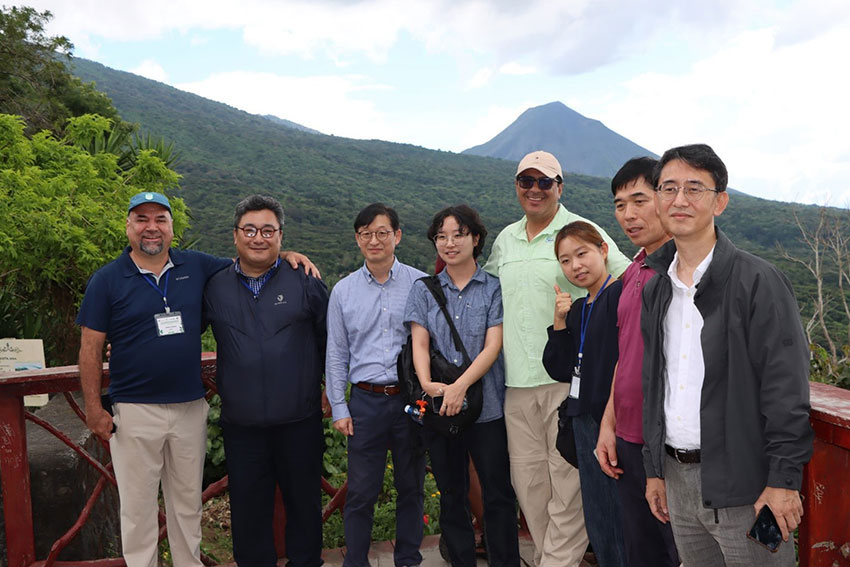
On the second day, a field trip was conducted to the Apaneca-Ilamatepec Coffee Mountain Range, where group exercises were carried out for measuring genetic material descriptors, and field practices were conducted at the germplasm bank of the Salvadoran Coffee Institute (ISC). This activity enabled theOn the second day, a field trip was conducted to the Apaneca-Ilamatepec Coffee Mountain Range, where group exercises were carried out for measuring genetic material descriptors, and field practices were conducted at the germplasm bank of the Salvadoran Coffee Institute (ISC). This activity enabled the identification of various coffee varieties from different groups and species, consolidating one of the project’s key objectives: the ongoing strengthening of the technical skills of researchers, students, and coffee producers in participating countries.
Preliminary data shows an increase in productivity across all countries, with variations depending on the country and type of pruning applied.
On the final day of the event, representatives from the participating countries and the KoLFACI and RDA organizations had the opportunity to attend the First Scientific Coffee Farming Meeting in El Salvador, held at the National Library of El Salvador (BINAES) and promoted by the Salvadoran Coffee Institute with the support of CATIE. This space facilitated knowledge exchange with coffee cultivation experts from El Salvador and Costa Rica.
Looking ahead to the coming years, new regional meetings are planned for 2025 and 2026 to disseminate the project’s results and achievements. These gatherings will provide opportunities not only to discuss technologies resulting from the combinations of varieties and pruning techniques but also to address the performance of genetic materials with potential for adaptation to the different effects of climate change, based on criteria defined by each country, such as high temperatures, droughts, and increases in pests and diseases.
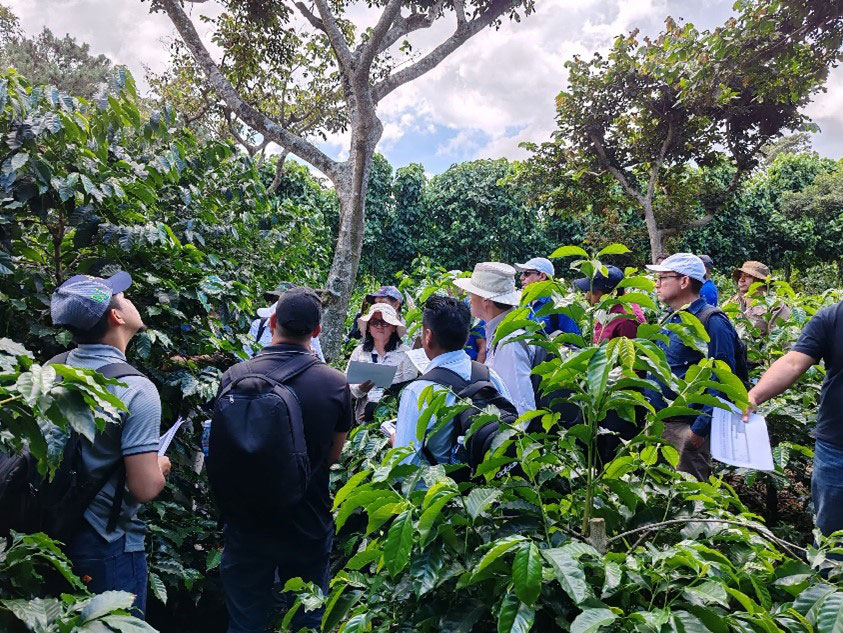
Written by:
Esteban Rodríguez Zamora
Communicator
Information Technology and Communication
CATIE
esteban.rodriguez@catie.ac.cr

